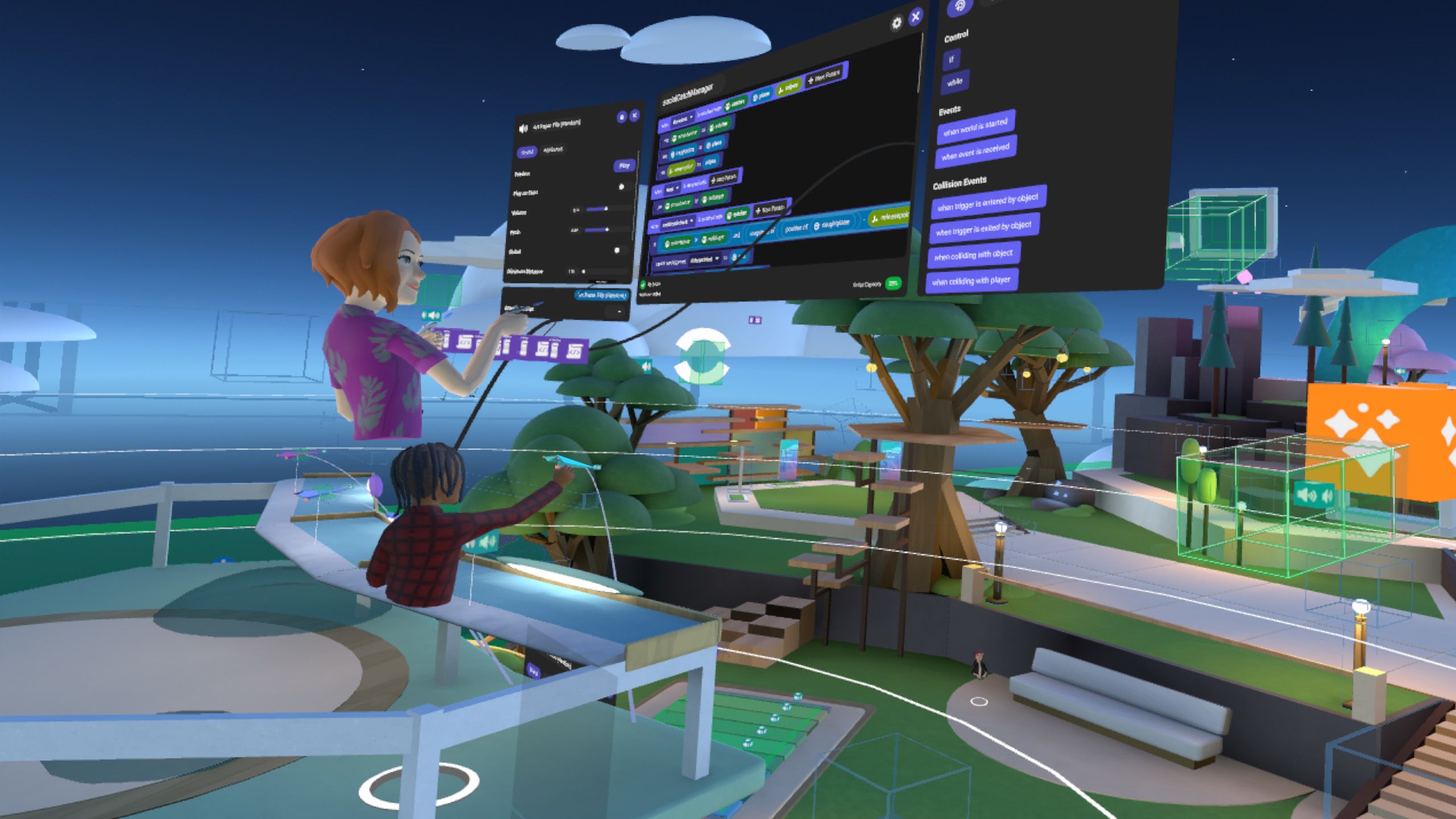#2030WorldCup: Unraveling the Intriguing World of Metaverse Gaming explores the potential fusion of virtual and real-world sporting experiences. Imagine watching the 2030 World Cup not just on your screen, but from the virtual stands of a hyper-realistic metaverse stadium, interacting with fellow fans globally and experiencing the game in unprecedented ways. This article delves into the technological advancements, economic impacts, social implications, and ethical considerations of this groundbreaking concept.
From virtual reality (VR) and augmented reality (AR) applications to the crucial role of 5G and beyond, the technological hurdles and potential solutions for creating a seamless global metaverse experience are examined. The article also analyzes the potential economic benefits for the sports industry and explores the social implications of increased accessibility and inclusivity for fans worldwide, regardless of geographical location.
Finally, the ethical considerations surrounding data privacy, responsible gaming, and the potential for addiction are addressed, emphasizing the need for responsible development and implementation.
Metaverse Gaming and the 2030 World Cup: A Vision of the Future
The 2030 World Cup presents a unique opportunity to revolutionize fan engagement through the integration of metaverse gaming technologies. Imagine a future where geographical boundaries dissolve, and fans worldwide experience the thrill of the game in unprecedented ways. This section explores the potential synergy between metaverse gaming and the global spectacle of the World Cup.
Metaverse Enhancements to World Cup Viewing
Metaverse gaming technologies can significantly enhance the World Cup viewing experience. Virtual stadiums, offering immersive, personalized views, would allow fans to choose their seat, camera angle, and even interact with other virtual attendees. Interactive elements, such as virtual replays with multiple angles, real-time statistics overlays, and even the ability to virtually “high-five” fellow fans, would foster a more engaging and communal experience.
Hypothetical Metaverse World Cup Match Experience
Picture this: you’re wearing a VR headset, transported to a virtual recreation of a packed stadium in Buenos Aires. The roar of the crowd is palpable, the smell of street food almost tangible. You can choose your seat, zoom in on individual players, and even interact with virtual representations of other fans from around the world. As a goal is scored, confetti rains down in the virtual stadium, and you feel the collective excitement of the digital crowd.
Remember to click Bellinger Bombs Shock Giants, Dodgers Steal NL West Crown to understand more comprehensive aspects of the Bellinger Bombs Shock Giants, Dodgers Steal NL West Crown topic.
You can access real-time statistics, replays from different angles, and even participate in virtual challenges or contests with other viewers.
Comparison of Traditional and Metaverse World Cup Viewing
| Aspect | Traditional Viewing | Metaverse Gaming | Advantages/Disadvantages |
|---|---|---|---|
| Viewing Location | Home, bar, stadium | Virtual stadium, personalized space | Advantage: Metaverse offers flexibility; Disadvantage: Requires technology access |
| Interaction | Limited to co-viewers | Global virtual community, interactive elements | Advantage: Enhanced social experience; Disadvantage: Potential for technical glitches |
| Immersion | Passive observation | Active participation, personalized views | Advantage: Deeper engagement; Disadvantage: Can be overwhelming for some |
| Accessibility | Limited by physical access | Potentially global reach | Advantage: Increased inclusivity; Disadvantage: Digital divide needs addressing |
Technological Advancements Required for Metaverse World Cup Gaming
Realizing a truly immersive metaverse World Cup gaming experience by 2030 requires significant technological leaps. Addressing challenges related to latency, bandwidth, and accessibility is crucial for ensuring a seamless experience for a global audience. This section details the necessary advancements and potential hurdles.
Key Technological Advancements
Several key technological advancements are needed to make immersive metaverse World Cup gaming a reality by 2030. These include advancements in high-bandwidth, low-latency networks, improved VR/AR hardware with enhanced fidelity and comfort, sophisticated haptic feedback systems for a more realistic sensory experience, and robust, scalable metaverse platforms capable of handling millions of concurrent users.
Challenges and Solutions
- Challenge: High latency leading to lag and disrupted gameplay. Solution: Development of edge computing infrastructure and optimized game engines.
- Challenge: Insufficient bandwidth for high-resolution streaming and data transfer. Solution: Investment in 5G and 6G networks, advanced compression techniques.
- Challenge: Accessibility issues for users with limited internet access or appropriate technology. Solution: Development of affordable VR/AR hardware and accessible platforms, improved internet infrastructure in underserved regions.
- Challenge: Motion sickness and discomfort from VR/AR usage. Solution: Improved VR/AR hardware design, adaptive rendering techniques.
Role of VR and AR, #2030WorldCup: Unraveling the Intriguing World of Metaverse Gaming

Virtual Reality (VR) and Augmented Reality (AR) will play pivotal roles in shaping the metaverse World Cup gaming experience. VR will provide fully immersive, virtual stadium experiences, while AR could overlay game statistics and interactive elements onto real-world viewing environments, enhancing the experience for both in-stadium and at-home viewers.
The Economic and Social Impact of Metaverse World Cup Gaming
The integration of metaverse gaming into the World Cup has the potential to significantly impact both the economic and social landscapes. This section explores the potential benefits and drawbacks of this technological integration.
Economic Impact
The metaverse World Cup could unlock new revenue streams for FIFA and related businesses. This includes virtual merchandise sales, virtual advertising opportunities, and the creation of entirely new forms of fan engagement. It also creates opportunities for new businesses specializing in metaverse gaming experiences and related technologies. The economic benefits could be substantial, particularly in terms of increased global reach and fan engagement.
Social Implications

A metaverse-based World Cup has the potential to enhance inclusivity and accessibility. Fans from geographically remote areas or with disabilities could participate in ways previously unimaginable. However, potential challenges exist regarding digital equity and the risk of exacerbating existing social inequalities if access to technology remains unevenly distributed.
Bridging Geographical Gaps
The metaverse has the potential to transcend geographical limitations, bringing together fans from across the globe in shared virtual spaces. This can foster a sense of global community and shared experience, promoting cultural exchange and understanding.
Benefits and Drawbacks
- Benefit: Increased fan engagement and global reach.
- Benefit: New revenue streams for FIFA and related businesses.
- Benefit: Enhanced accessibility for diverse audiences.
- Drawback: Potential for digital divide to exacerbate existing inequalities.
- Drawback: Concerns about data privacy and security.
- Drawback: Potential for addiction and other negative consequences of excessive gaming.
Game Design and Development for a Metaverse World Cup
Designing a successful metaverse game centered around the 2030 World Cup requires careful consideration of game mechanics, user interface, and user experience. This section Artikels a conceptual design and explores suitable game genres.
Conceptual Metaverse World Cup Game
The game, titled “World Cup Metaverse,” would combine elements of sports management, strategy, and social interaction. Players could create personalized avatars, manage virtual teams, participate in virtual matches with realistic gameplay, and interact with other players in virtual stadiums and social hubs. The game would feature realistic graphics, accurate team rosters, and a dynamic game world that evolves based on real-world match results.
User Interface (UI) and User Experience (UX)
The UI would be intuitive and user-friendly, prioritizing ease of navigation and accessibility. The UX would focus on creating an immersive and engaging experience, balancing realistic gameplay with social interaction and personalized customization options. The game would utilize VR/AR integration to enhance the sense of presence and immersion.
Game Genres and Gameplay Loop
The game could incorporate elements from various genres, including sports management (team building, strategy), simulation (realistic gameplay), and social interaction (virtual communities, events). The core gameplay loop would involve managing a virtual team, participating in virtual matches, interacting with other players, and progressing through a season culminating in a virtual World Cup final.
- Team Management: Select players, strategize formations, and manage team finances.
- Virtual Matches: Participate in realistic matches with AI opponents or other players.
- Social Interaction: Interact with other players in virtual stadiums, social hubs, and online forums.
- Progression: Advance through a season, participating in tournaments and aiming for the virtual World Cup final.
Security and Ethical Considerations in Metaverse World Cup Gaming: #2030WorldCup: Unraveling The Intriguing World Of Metaverse Gaming
The metaverse World Cup, like any online platform, presents potential security and ethical concerns. Addressing these issues proactively is vital for ensuring a safe and responsible gaming environment. This section identifies key risks and mitigation strategies.
Security Risks and Mitigation Strategies
Potential security risks include data breaches, scams, and the potential for malicious actors to disrupt the gaming experience. Mitigation strategies involve robust security protocols, user authentication systems, and regular security audits. Educating users about potential risks and promoting safe online practices is also crucial.
Ethical Concerns and Mitigation Strategies
| Ethical Concern | Mitigation Strategy |
|---|---|
| Data privacy | Transparent data collection policies, user control over data sharing. |
| Responsible gaming | In-game tools to monitor and limit playtime, educational resources on responsible gaming. |
| Addiction | In-game break reminders, integration with mental health resources. |
| Accessibility and inclusivity | Design for diverse abilities, provide options for accessibility. |
The integration of metaverse gaming into the 2030 World Cup presents a paradigm shift in sports viewing and engagement. While challenges remain in terms of technology, security, and ethics, the potential rewards—enhanced fan experiences, global accessibility, and new economic opportunities—are significant. The success of this ambitious vision hinges on responsible development, prioritizing user experience, security, and ethical considerations. The 2030 World Cup may well mark a pivotal moment, not just in the history of the tournament, but in the evolution of entertainment and global connectivity itself.



